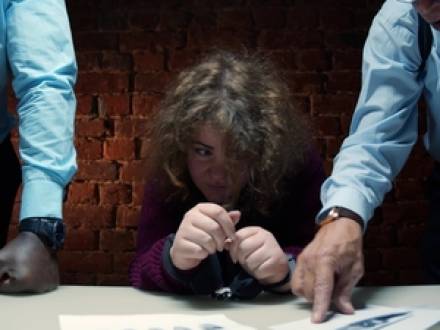False Confessions: What Illinois Forensic Psychologists Reveal
 Confessions presented in court for criminal offenses are often seen as a definitive "smoking gun," determining guilt beyond a reasonable doubt. After all, who would confess to something they did not do? Unfortunately, false confessions are much more common than you would think, and the state of Illinois has a troubling history of wrongful confessions tied to coerced or false confessions. In fact, the state has learned the hard way – through high-profile exonerations – that psychology can be just as critical as physical evidence.
Confessions presented in court for criminal offenses are often seen as a definitive "smoking gun," determining guilt beyond a reasonable doubt. After all, who would confess to something they did not do? Unfortunately, false confessions are much more common than you would think, and the state of Illinois has a troubling history of wrongful confessions tied to coerced or false confessions. In fact, the state has learned the hard way – through high-profile exonerations – that psychology can be just as critical as physical evidence.
Forensic psychologists can help jurors understand why an innocent person might confess to a crime he or she did not commit, while defense attorneys can utilize this science to help protect their clients. If you are facing serious criminal charges and you were coerced into confessing to a crime you did not commit, a Naperville, IL criminal defense attorney can help.
How Often Do False Confessions Occur?
It is estimated that between 19 and 30 percent of all confessions are false. Illinois ranks among the top states for wrongful convictions, many of them tied to false confessions. Other statistics from the Innocence Project regarding false confessions include:
- Police-induced false confessions, which appear primarily in homicides (720 ILCS 5/9-1) and other high-profile felonies, are among the leading causes of wrongful convictions. Despite this, only 22 states require interrogations to be recorded.
- More than two-thirds of the DNA-cleared homicide cases documented by the Innocence Project were caused by false confessions.
- Eighteen of the 258 people exonerated through DNA served time on death row.
- Sixty-eight percent of people polled indicated that they believed a suspect would "almost never" falsely confess.
The Psychology Behind False Confessions
The basic psychology behind false confessions involves vulnerabilities in the suspect, as well as coercion and deception. Tactics like lengthy interrogations and lying about evidence can pressure innocent individuals to confess, especially those who suffer from an intellectual disability or mental illness, or those who are young. Coerced confessions occur when a suspect falsely confesses to escape the stress of the interrogation or gain a perceived benefit, such as a promise of leniency.
In other cases, police tell the suspect so many times that he or she did commit the crime that the suspect’s memory becomes contaminated. Memory gaps are replaced with imaginary experiences that the police have convinced the suspect are true. Isolation tactics are also used by police to elicit confessions. A suspect is kept in a small, windowless room that is usually either overly hot or cold, providing a further motive to confess (Police often tell suspects that if they just confess, they can go home).
The "evidence" against a suspect is often inflated to the point that the suspect begins to feel hopeless. Police may offer moral justification for the crime, making it easier to confess ("I understand why you killed her, after all, she was cheating on you.") Police are allowed to lie about evidence, even claiming that a witness saw the suspect commit the crime, to pressure him or her into confessing.
The Most Vulnerable Individuals for False Confessions
Anyone who lacks a thorough understanding of his or her rights and the consequences of confessing can be misled into confessing. Teens and young adults are especially susceptible. Individuals with an intellectual disability are vulnerable due to increased suggestibility and limited comprehension.
Those with a mental illness may be confused by the entire interrogation, making them more susceptible to pressure and manipulation. While most people are skeptical that a person would falsely confess, everyone has a breaking point. The combination of coercive interrogation tactics and psychological vulnerabilities can cause almost anyone to falsely confess.
Contact a DuPage County, IL Criminal Defense Lawyer
Unfortunately, by the time a false confession is overturned, the real guilty party may have committed more crimes while the innocent party spent time in prison. The impact of false confessions extends far beyond the innocent party to their families, friends, and the broader community.
If you are facing criminal charges, particularly if you were coerced into a confession, a highly experienced Naperville, IL defense attorney from Appelman Law LLC can help. Attorney Appelman holds a master’s degree in forensic psychology in addition to his law degree, which can be an invaluable resource for clients. Do not face the system alone; call 630-717-7801 to schedule your free consultation.





